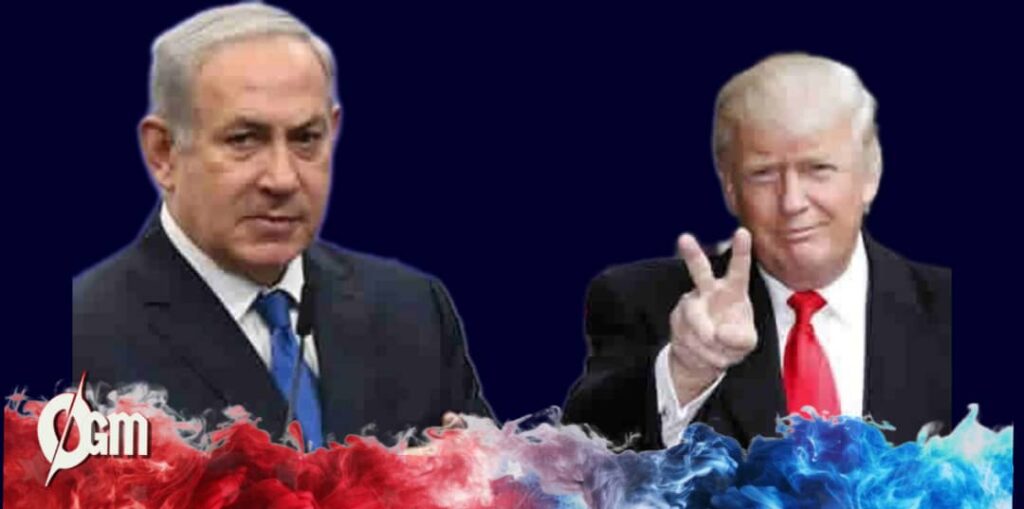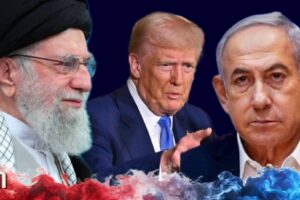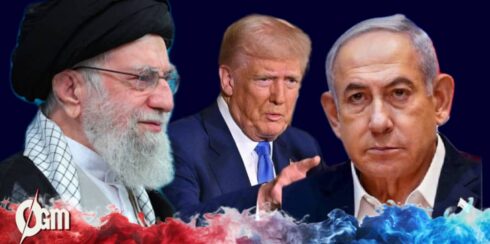President Donald Trump has reportedly blocked an Israeli plan to assassinate Iran’s Supreme Leader, Ayatollah Ali Khamenei, amid escalating hostilities between the two nations. According to three U.S. officials who spoke with CBS News, the decision followed high-level discussions between Trump and Israeli Prime Minister Benjamin Netanyahu in the wake of Israel’s recent military strikes on Iranian targets.
U.S. Officials: Trump Rejected Assassination Proposal
According to multiple U.S. sources, President Trump intervened directly to dissuade Israel from carrying out a targeted assassination of Ayatollah Khamenei. The plan, described as a rare opportunity by Israeli officials, was reportedly presented to Trump following Israel’s large-scale retaliation against Iranian military infrastructure.
One U.S. official revealed that Trump personally conveyed to Netanyahu that assassinating Khamenei “wasn’t a good idea.” While details of the proposal remain classified, the discussion highlights the gravity of the current geopolitical tension in the Middle East and Trump’s preference for strategic restraint.
External link on the second and third subtitles
During an interview on Fox News’ Special Report with Bret Baier, Prime Minister Netanyahu declined to confirm or deny the assassination plan when asked directly. “There’s so many false reports of conversations that never happened,” Netanyahu said. “We will do what we need to do, and I think the United States knows what is good for the United States.”
Despite avoiding a direct answer, Netanyahu reaffirmed Israel’s sovereign right to defend itself. However, an Israeli official in Washington offered a nuanced stance, saying Israel generally does not target political leaders, but emphasized that those directing Iran’s nuclear and military programs should not “live free and easy.”
Ongoing Israel-Iran Tensions Shape U.S. Calculations
The reported Israeli proposal came during a period of intense military exchanges between Israel and Iran, which entered a third consecutive day of missile attacks over the weekend. These retaliatory strikes are part of a broader regional crisis fueled by Iran’s nuclear ambitions and Israel’s strategic calculus.
While the U.S. has reiterated that it played no part in Israel’s recent strikes, Washington has remained closely involved in monitoring the unfolding crisis. A senior American official told Opitanglobamedia News that there has been no direct U.S.-Iran contact, though communication between U.S. and Israeli leaders has remained frequent and active throughout the crisis.
OGMNews.COM
Netanyahu Wanted Khamenei Dead — Trump Said No: Strategic Restraint or Political Blunder?

Though he has not directly addressed the assassination plot report, President Trump issued a stern warning to Iran via his Truth Social account. He declared that the U.S. would unleash “the full strength and might of the U.S. Armed Forces” should Iran retaliate against American interests in the region.
Trump emphasized that the U.S. had “nothing to do with the attack on Iran,” distancing Washington from Israeli military actions. However, his warning underscored the administration’s commitment to deterrence and readiness to defend U.S. forces and allies in the Middle East.
Call for Peace: Trump Predicts Deal Between Iran and Israel
Despite the rising tensions, President Trump struck a cautiously optimistic note later on Sunday, predicting a possible deal between Iran and Israel. In his remarks, he cited his prior success in de-escalating international conflicts, referencing his role in calming tensions between India and Pakistan.
“Just like I got India and Pakistan to make peace,” Trump said, “Iran and Israel should make a deal—and will make a deal.” The statement aligns with his administration’s broader emphasis on diplomacy, even as military readiness remains a central pillar of U.S. foreign policy.
G7 Summit: Mideast Crisis Takes Center Stage
President Trump is scheduled to attend the G7 leaders’ summit in Canada, where the Israel-Iran crisis is expected to dominate discussions. The summit provides a platform for Trump to coordinate with global allies on the rapidly evolving situation and explore diplomatic solutions.
Ahead of his departure, Trump held a phone call with Russian President Vladimir Putin, discussing the volatile situation in the Middle East. The move signals Trump’s intent to engage key international stakeholders in hopes of preventing further escalation and potential regional war.
Strategic Patience or Missed Opportunity?
Donald’s decision to oppose the assassination of Iran’s Supreme Leader has sparked debate within strategic circles. Some see it as a necessary act of restraint that could prevent a wider war, while others question whether a critical window to cripple Iran’s leadership was missed.
Nevertheless, the president’s response reflects his broader approach to foreign policy: combining military deterrence with an overt preference for negotiated outcomes. Whether this dual strategy can de-escalate one of the Middle East’s most dangerous rivalries remains to be seen.














